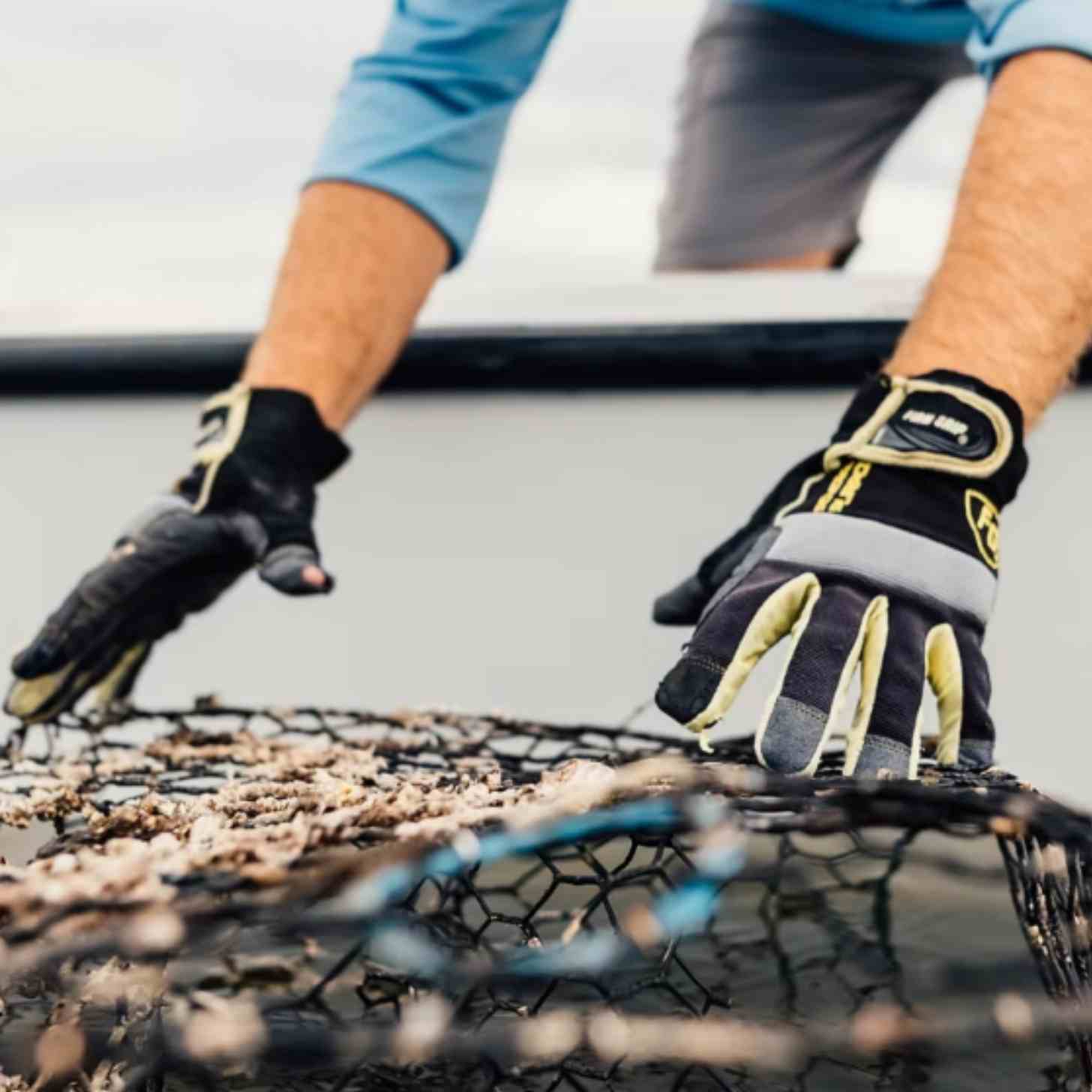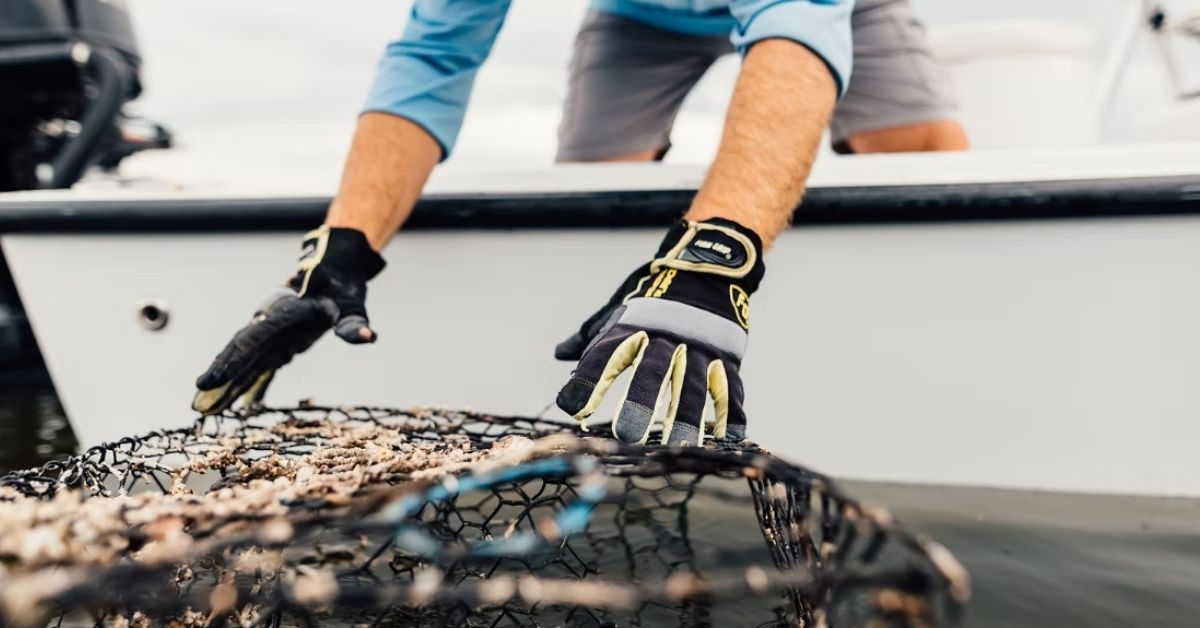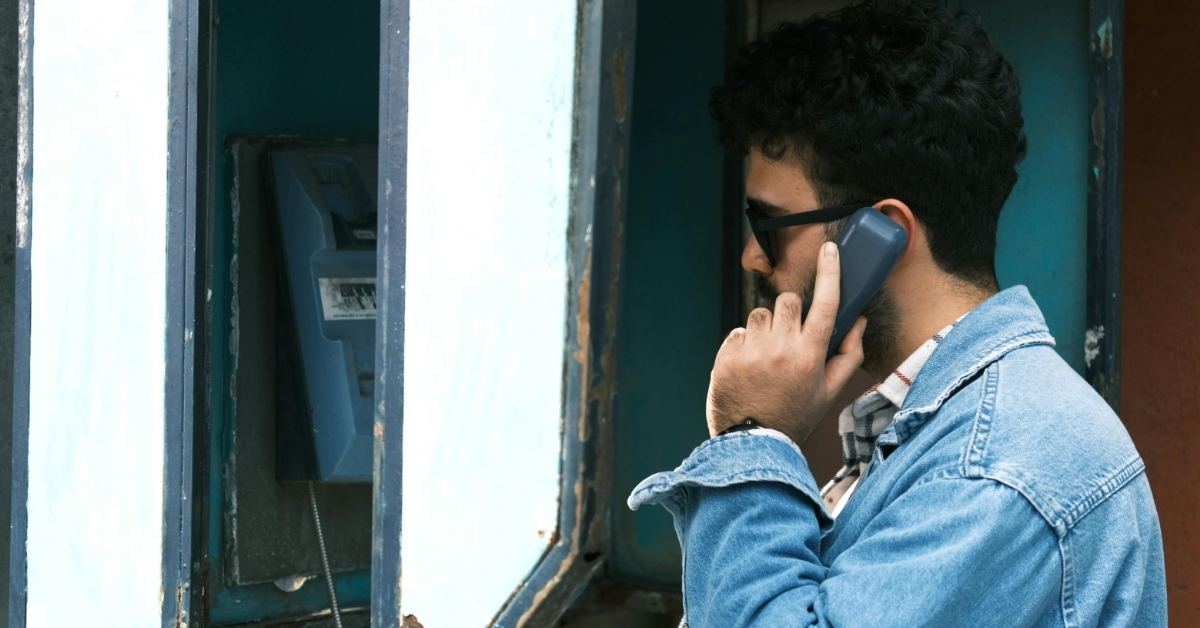Florida native Neill Holland became a charter captain at age 18. In 2015, after traveling internationally for a decade, he returned to St. Petersburg, Florida, to resume his fishing charter operation with his partner Danielle Dawley.
Time and again on their charters, Dawley and Holland came across derelict traps, also known as ghost traps.
Ghost traps are fishing traps that have been swept away in storms and currents or simply abandoned over time.
Once lost, these rusted traps often pose risks to coral reefs below and passing boats above — all while trapping and killing marine life that die long before they are pulled to the surface.
Those decaying fish, in turn, attract more sea animals into the trap, starting the cycle anew.
After ghost traps continued cropping up in their day-to-day, Dawley and Holland founded Ocean Aid 360: a conservation organization that works with fishing industry professionals, community volunteers, and government agencies to find, retrieve, and recycle marine debris — including ghost traps.
Their most popular program? Ghost trap rodeos: fishing tournaments that reward entrants for salvaging abandoned fishing gear.
“We started in October of 2018 through a grant from NOAA, which enabled us to hold seven tournament-style marine debris events around Tampa Bay,” Holland told the Port Charlotte Sun in mid-July.
“In that first year, our target was 15,000 pounds of marine debris. We ended up collecting 27,000 pounds, and had fabulous numbers of community members coming out to participate,” he said.
“Since then, we’ve worked all over Florida and the Bahamas, with more than 60 event days and about 60,000 pounds of marine debris collected — including more than 8,200 derelict traps.”

The latest ghost trap rodeo — hosted on July 19 — pulled in 4,000 pounds of trash, including 128 ‘ghost traps,’ from the Tampa Bay.
Two minutes into the event, Holland was already reeling in a ghost trap.
“This is a textbook example of a derelict crab trap,” Holland told the Tampa Bay Times. “It’s been left out, and as you can see it’s pretty darn crusty and rusted.”
Holland estimates that 10% of all traps placed in the water become ghost traps.
“It’s a recurring problem here, and we really have to stay on top of it,” said Peter Clark, the president and founder of Tampa Bay Watch — one of many local organizations that helped host the ghost trap rodeo competition.
“We’re helping to protect fish and wildlife, we’re taking marine debris out of the bay, and it’s a great project to get the community involved to help restore and protect Tampa Bay.”
As debris was dredged up during the four-hour tournament, various critters were freed from traps. Rescued animals included baby gag groupers, stone crabs, scorpionfish, mangrove snappers, and a small fish on the verge of death.
“Making sure we’re not harming innocent sea creatures is very important to me,” said Joe Gross, a volunteer who helped pull in thousands of feet of fishing line.
Ocean Aid 360 doesn’t just limit its ocean clean-ups to ghost trap rodeos.
In May — as local temperatures hovered around 100 degrees Fahrenheit — a team of commercial fishermen and Reef Relief data collectors boarded the Ocean Aid 360 fleet for a three-week conservation project.
In the end, the crew removed 3,478 abandoned traps — over 165,000 pounds of litter — from the lower Florida Keys.
“Not only did we clear marine debris, but we also catalogued and freed thousands of bycatch specimens (lobster, crabs, sharks, groupers, etc.),” the nonprofit posted to their official website on July 1.
“[We’re] giving marine life a second chance — and helping local fishermen start the next season strong.”
When asked what the biggest misconception about his nonprofit was, Holland told Catalyst: “That being environmentally impact-conscious is somehow at odds with my work as a fishing captain.”
“When in fact,” he said, “it’s the basis.”
Header image via Ocean Aid 360



